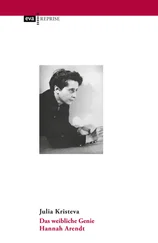15. VI D , 8:3, CW 2:406–7.
16. VI D , 9:4, CW 2:411–12.
17. Life , 4:7, CW 1:68.
18. Ibid.
19. VII D , 2:4, CW 2:434.
20. IV D , 1:8, CW 2:319.
21. Mercedes Allendesalazar, Thérèse d’Avila, l’image au féminin (Paris: Seuil, 2002).
14. “THE SOUL ISN’T IN POSSESSION OF ITS SENSES…”
1. Life , 18:2, CW 1:158.
2. Life , 18:1, CW 1:157.
3. Life , 18:2, CW 1:158.
4. Life , 18:4, CW 1:158.
5. Life , 18:12–14, CW 1:162–63.
6. Life , 19:2, CW 1:164.
7. Life , 14:8, CW 1:137.
8. Life , 19:9, CW 1:168.
9. Giovanni Battista Tiepolo: 1696–1770.
10. Life , 20:24, CW 1:182–83.
11. Life , 20:25, CW 1:183.
12. Life , 20:24, CW 1:183.
13. Life , 20:15, CW 1:178–79.
14. Life , 20:12, CW 1:177.
15. Ibid.
16. Life , 18:1, CW 1:157–58.
17. Life , 18:12–13, CW 1:162.
18. Life , 18:10, CW 1:161.
19. Life , 20:3–4, CW 1:173.
20. Life , 20:5, CW 1:174.
21. Life , 20:7–8, CW 1:175.
22. Life , 20:9, CW 1:176.
23. Life , 20:12, CW 1:177.
15. A CLINICAL LUCIDITY
1. Marguerite Duras, The Vice-Consul , trans. Eileen Ellenbogen (London: Hamish Hamilton, 1968), 61. The first part of the quote was mistranslated by Ellenbogen.
2. Marguerite Duras, Destroy, She Said , trans. Barbara Bray (New York: Grove, 1994).
3. Marguerite Duras, Hiroshima mon amour and Une aussi longue absence , trans. Richard Seaver and Barbara Wright (London: Calder & Boyars, 1966), 65: “All I could see were the similarities between this dead body and mine…screaming at me.”
4. Marcel Proust, “The Prisoner,” in In Search of Lost Time , trans. and with an introduction and notes by Peter Collier, ed. Christopher Prendergast (London: Penguin, 2002), 5:357.
5. Marcel Proust, Time Regained , trans. Stephen Hudson (London: Chatto and Windus, 1949), chap. 2: “A material of its own, a new one, of a special transparency and sonority, compact, fresh and pink” (215); “Ideas are substitutes for sorrows” (260).
6. Maurice Barrès: 1862–1923.
7. See Julia Kristeva, Time and Sense: Proust and the Experience of Literature , trans. Ross Guberman (New York: Columbia University Press, 1998), 106–8, 245.
8. Way , 28:10, CW 2:144.
9. Colette, Le pur et l’impur , in Œuvres (Paris: Gallimard, 1991), 3:565: “Ce qui me manque, je m’en passe.”
10. Colette, Mes apprentissages , in Œuvres , 3:1053: “Ce bon gros amour…”
11. Colette, Retreat from Love , trans. and with an introduction by Margaret Crosland (London: Peter Owen, 1974), 27.
12. Colette, La naissance du jour , in Œuvres , 3:290: “On possède dans l’abstention, et seulement dans l’abstention…pûreté de ceux qui se prodiguent.”
13. Fyodor Dostoyevsky, The Devils , trans. and with an introduction by David Magarshack (London: Penguin, 1971), 586–87.
14. Fyodor Dostoyevsky, letter to A. N. Maikov, Florence, May 15/27, 1869, in Joseph Frank and David I. Goldstein, eds., Selected Letters of Fyodor Dostoyevsky (New Brunswick: Rutgers University Press, 1987), 311: “The main reason [for not writing] was despondency.”
15. Gérard Labrunie (Gérard de Nerval), “El desdichado,” trans. Richmond Lattimore, in The Anchor Anthology of French Poetry , ed. Angel Flores (New York: Anchor, 2000), 9: “Twice have I forced the crossing of the Acheron / and played on Orpheus’s lyre in alternate complaint / Mélusine’s cries against the moaning of the Saint.”
16. Life , 20:18, CW 1:180.
17. Life , 20:19, CW 1:180.
18. Life , 20:22, CW 1:181.
19. Life , 29:11, CW 1:251.
20. Life , 10:1, CW 1:105.
21. Life , 29:8, CW 1:250.
22. Life , 4:9, CW 1:68.
23. Life , 4:9, CW 1:68–69.
24. Way , 38:9, CW 2:188.
16. THE MINX AND THE SAGE
1. Life , 23:7, CW 1:203.
2. Colette, Les Vrilles de la vigne , in Œuvres (Paris: Gallimard, 1991), 1:961: “Je voudrais dire, dire, dire, tout ce que je sais, tout ce que je pense, tout ce que je devine, tout ce qui m’enchante, et me blesse, et m’étonne” (my translation — LSF).
3. Life , 30:16, CW 1:261.
4. Life , 30:19, CW 1:262.
5. Life , 29:4, CW 1:247.
6. Life , 31:12, CW 1:269.
7. Life , 31:13, CW 1:269.
8. Life , 31:16, CW 1:270.
9. Way , 12:1, CW 2:81.
10. Way , 40:9, CW 2:195.
17. BETTER TO HIDE…?
1. Cf. Joseph Pérez, L’Espagne de Philippe II (Paris: Fayard, 1999), 140 et seq.
2. Miguel de Cervantes, Don Quixote (1885; Project Gutenberg) first part, chap. 1, trans. John Ormsby, www.gutenberg.org/cache/epub/996/pg996.html. Release date July 27, 2004. Accessed November 11, 2012.
3. Juan de Ávila: 1499–1569.
4. Luis de Granada: 1504–1588.
5. Fernando de Valdés: 1483–1568.
6. Melchor Cano: 1509–1560.
7. Martin Luther: 1483–1546.
8. Juan de Valdés: 1498 (?).
9. Francisco Jiménez de Cisneros: 1436–1517.
10. Benito Arias Montano: 1527–1598.
11. Christophe Plantin: 1520–1589.
12. Life , 24:2, CW 1:209.
13. Life , 19:4, CW 1:166.
14. Life , 18:4, CW 1:159.
15. Life , 40:8, CW 1:357.
16. Life , 18:4, CW 1:159.
17. Life , 9:2, CW 1:101.
18. Life , 27:2, CW 1:228.
19. Life , 27:3, CW 1:228–29.
20. Life , 27:5, 7, CW 1:229–30 (adapted).
21. Life , 27:8–10, CW 1:230–32.
22. Life , 28:1, CW 1:237.
23. Life , 28:3, CW 1:237–38.
24. Life , 28:4–5, CW 1:238–39.
25. Rosa Rossi, Thérèse d’Avila (Paris: Cerf, 1989), 67: “S’unir, se transformer en Dieu [to be united, to be transformed into God].”
26. V D , 1:12, CW 2:340.
27. VI D , 4:4, CW 2:380.
28. I D , 1:3, CW 2:284.
29. VII D , 2:3, CW 2:434.
30. Life , 28:9, CW 1:241.
31. Life , 29:3, CW 1:247.
32. Life , 28:8, CW 1:240.
33. Life , 40:1, CW 1:354.
18. …or “TO DO WHAT LIES WITHIN MY POWER”?
1. Letter 5, to padre García de Toledo, 1565, CL 1:41.
2. Way , 7:8, CW 2:70 (amended).
3. VII D , 2:10, CW 2:437.
4. Life , 10:7, CW 1:108.
5. Life , 23:1, CW 1:200–1.
6. Life , 23:3, CW 1:201.
7. Letter 269, to padre Pablo Hernández, S.J., October 4, 1578, CL 2:122.
Читать дальше












